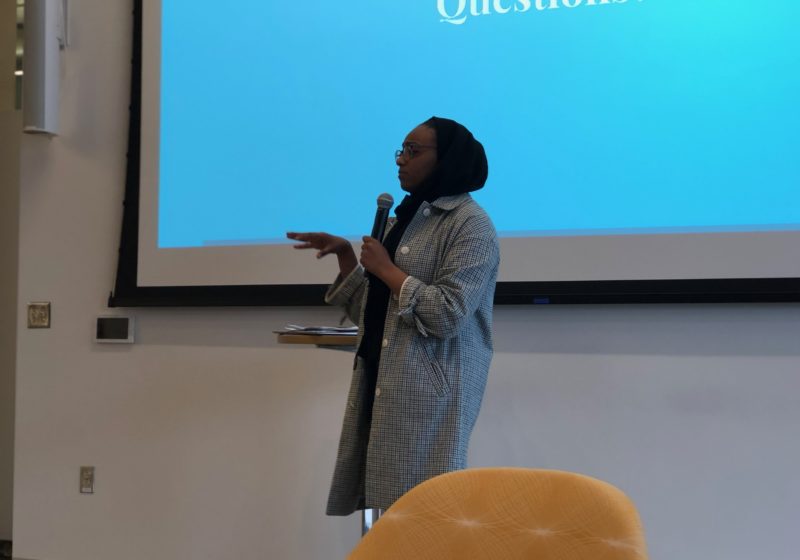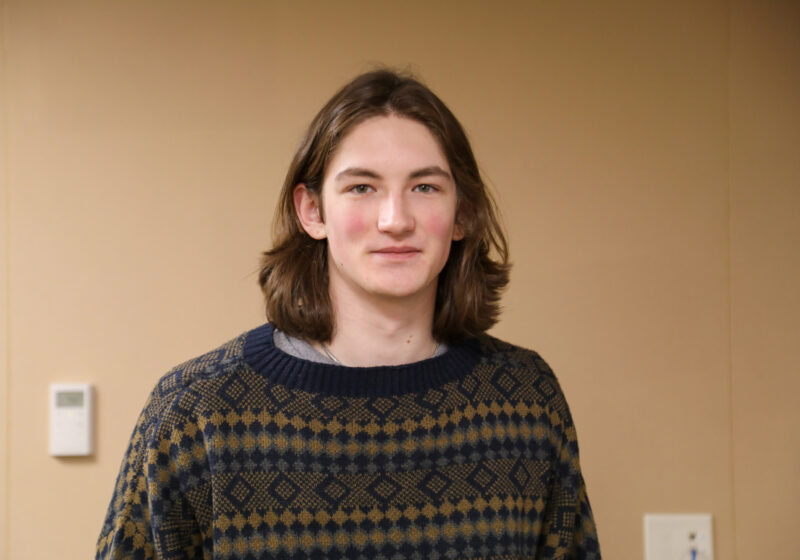Students and guests from local non-profit organizations discussed what it means to “think globally, act locally” at the iZone Forum on Thursday.
A global citizen is “someone who strips themselves away from borders,” event organizer and sophomore Hager Elkhidi said. “Someone who is willing to grasp an idea and act on it.”
Elkhidi’s inspiration for the event stemmed from her experience at an International Baccalaureate student conference on global citizenship. “I wanted to mimic that here,” Elkhidi said.
The workshop, organized by the Committee for Political Engagement, followed a similar format to that conference, featured multiple roundtable discussions each centered on a different sustainable development goal.
Each table was also paired with a representative from a local organization working in the field in order to stay true to the event’s theme.
“How can we as UR students improve the Rochester community?” one student at the table for decent work and economic growth asked. Donna Harris, a representative from the Center for Governmental Research, responded by advising students to ask communities what they need. “[We should] suspend our assumptions of how things work,” Harris said. “Build trust, listen to people, and be consistent.”
Daphne Pariser, a representative from Humans for Education, also shared her interpretation of “think globally, act locally.” She believes working within small communities will ultimately cause a domino effect to improve the whole world.
“[You should] focus on one area to alleviate and move on,” she said at the table for quality education. Her non-profit has worked with businesses and schools in Kenya for the past 10 years.
Representatives from local organizations United Way of Greater Rochester, Rochester People’s Climate Coalition, and the Catholic Family Center were also present.
Toward the end of the event, Pariser gave a speech titled, “How can we change the world?” in which she shared lessons learned from working with Kenyan locals — in particular, the importance of quality education and paying teachers on time.
She also highlighted the impact of sickness, and preventing it, on education. Many children in Kenya are exposed to deadly illnesses, Pariser said, some of which could be mitigated by techniques as simple as deworming.
Deworming gets rid of deadly parasites in a human’s body. Although this technique can be expensive, Pariser said, it led to a higher attendance rate in schools, leading to better education for these children.
Elkihidi pointed out that these problems are not exclusive to Kenya. “Everyone around the world experiences hunger, everyone experiences homelessness,” she said. “These are all things that need to be tackled.”
Attending students appreciated the opportunity to engage with community members.
“I feel that an essential problem that we suffer from on campus is that […] we don’t really get to interact with the community surrounding us,” junior Amro Bayoumy said.
The goal, Elkhidi said, will be to extend the principles of the University’s annual volunteering day — Wilson Day — beyond its 24 hours.
“That one day is great […] but it could occur more often and in different ways,” she said. “I think the University needs to expose students to organizations off campus that are willing to take students […] who want to help and fulfill their civic duties.”



